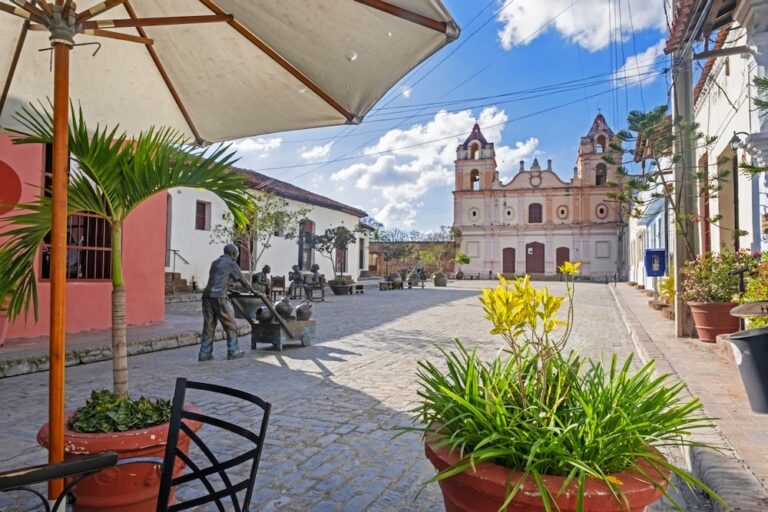(RSF/IFEX) – In a letter to Minister of the Interior Abelardo Colomé Ibarra, RSF protested the arrest of Jesús Joel Díaz Hernández, Carlos Brizuela Yera and Dorka de Céspedes. The organisation asked the minister of the interior to “put an end to the pressure faced by journalists.” “About fifteen journalists have been arrested since 1 […]
(RSF/IFEX) – In a letter to Minister of the Interior Abelardo Colomé Ibarra, RSF protested the arrest of Jesús Joel Díaz Hernández, Carlos Brizuela Yera and Dorka de Céspedes. The organisation asked the minister of the interior to “put an end to the pressure faced by journalists.” “About fifteen journalists have been arrested since 1 January 2001,” recalled RSF Secretary-General Robert Ménard. In an 18 August 2001 letter, RSF asked the Belgian minister of external affairs, who was in Havana for a three-day visit, to see to it “that Cuba faces consequences for the lack of progress with regards to press freedom,” and to intervene so that journalist Bernardo Arévalo Padron and labour activist José Orlando González Bridon, both of whom were imprisoned for press crimes, are released.
According to information collected by RSF, on 22 August, Díaz Hernández, of the Avileña Cooperative of Independent Journalists (Cooperativa Avileña de Periodistas Independientes, CAPI) news agency, and Brizuela Yera, a contributor to the Camaguey Independent Journalists’ Cooperative (Cooperativa de Periodistas Independientes de Camaguey, CPIC) news agency, were arrested by state security officers. Four radios and two boxes of books were confiscated. The two journalists were released eight hours later. On the same day, de Céspedes, of the Havana Press news agency, was arrested while she was preparing to cover a demonstration organised by civilian associations that are not recognised by the authorities. She was taken away from the area where the event was to take place, and threatened with imprisonment by a dozen state security officers before she was released.
Díaz Hernández was detained on 18 January 1999, and sentenced the following day to four years in prison for being “a danger to society.” According to Article 72 of the Criminal Code, his conduct was found to “clearly contradict the norms of socialist morals.” He was released on 17 January 2001 after having completed half of his prison term (see IFEX alerts of 20 February, 23 and 19 January 2001, 25 July, 28 June, 11 April, 14 and 9 February 2000, 2 December, 17 June, 2 March, 3 February, 29 and 20 January 1999). Suspected of being the author of anti-government posters, Brizuela Yera was arrested on 1 May 2001 and detained for four days. The police seized a number of documents from his home.
Arévalo Padron, director of the independent news agency Línea Sur Press, was sentenced in November 1997 to six years’ imprisonment for insulting (“desacato”) President Fidel Castro and Vice-President Carlos Lage (see IFEX alerts of 4 July, 12 April, 26 and 12 March and 20 February 2001, 25 July and 11 April 2000, 10 December, 22 October, 17 June and 29 January 1999 and 21 September 1998). González Bridon, secretary-general of the Confederation of Cuban Democratic Workers (Confederacion de Trabajadores Democráticos de Cuba, CTDC, an illegal organisation), was sentenced to two years’ imprisonment for “spreading false information and damaging the Cuban government’s good name and reputation” (see IFEX alerts of 26 and 20 June and 24 and 8 May 2001).
In Cuba, where the Constitution stipulates that “the right to speak and press freedom must conform to the objectives of a socialist society,” only the official press is authorised. Some 100 independent journalists, grouped into about twenty news agencies that are not recognised by the state, are subject to constant harassment. In 2000, eighteen of them were forced into exile, thirty-nine were arrested and RSF has recorded seventy cases of exerted pressure or obstacles to freedom of expression (summons by the police, threats and intimidation, pressure faced by journalists’ families, cases in which homes were under surveillance, etc.).
Belgium currently holds the presidency of the European Union. In a common position, adopted on 2 December 1996, the European Union Council committed to “full cooperation with Cuba … subject to an improvement in the state of human rights and political freedoms.” Cuba wishes to come under the Cotonou Agreement, which sets out the terms of the Fifteen European countries’ support for the African, Caribbean and Pacific (ACP) states.


